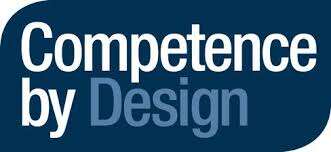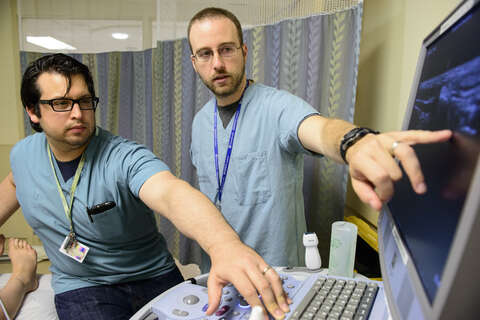Breadcrumbs
EM Resident Resources
Message to Medical Students- 2020
Welcome to our program CaRMS website!
Message from Program Director and Assistant Program Director We know that the CaRMS match is an important milestone for you in your professional journey and we know what an important landmark it is in all our trajectories as medical professionals. It's been a whirlwind these past few months, with many changes, uncertainties, and disruptions caused by COVID-19. We know that you are dealing with uncharted territory and we want you to know that you are not alone and that we are all in this together! We are working hard with our resident and faculty leadership to find creative solutions to some of the challenges that we are all facing in this upcoming Match. The information on the official CaRMS website will be updated mid-late September. In the meanwhile, we will be posting information about our amazing program on this website. We are also active on social media and you can find our Twitter and Instagram handles below. Check back in regularly as we continue posting new content. We are looking forward to meeting you, reviewing your applications, and welcoming you to our amazing Emergency Medicine Program! Nazanin Meshkat (PD) and Kaif Pardhan (APD) | 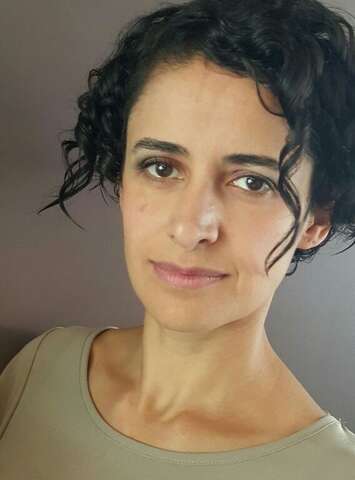
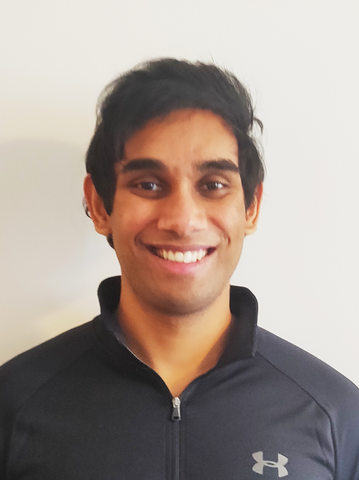
|
Message from Lead Residents! We are so excited you're interested in the University of Toronto’s Emergency Medicine Program! We are so proud to be part of the best emergency medicine program in Canada and are ready to share it with you. CaRMS will be different this year and our program is adapting to meet your virtual needs with online meet and greets, hospital video tours, and a new instagram page to show off our amazing co-residents. Although you may not be able to visit us in person, we hope you get a sense of what a wonderful and supportive community we are part of in Toronto and that you can be a part of too! Please reach out to us at any time with questions or just to say hi- torontoemleads@gmail.com Cheers, Julianna Deutscher & Victoria Myers Lead Residents for 2020-2021
| 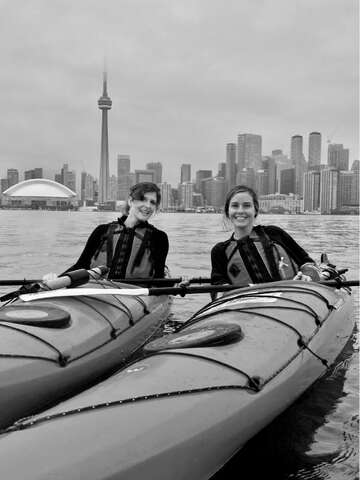
|
Our Current Residents
PGY1
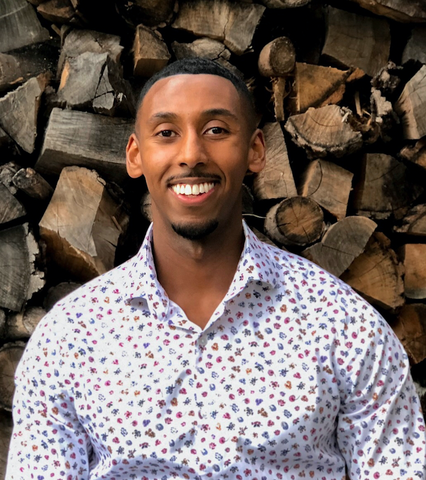
| Name: Amir Ali Hometown: Winnipeg, Manitoba Medical School: University of Manitoba Bio: I spent most of my life dribbling a basketball in the Canadian Prairies waiting for the Raptors to call... but that didn’t happen so I decided to run around the world for a bit before going to medical school. Now beginning an EM journey at UofT while also searching for the best injera in Toronto. Medical interests include Global Health & Medical Education. |
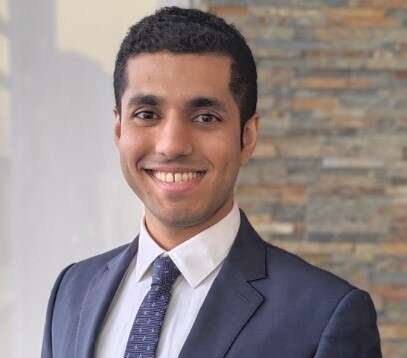
| Name: Amit Chopra Hometown: Toronto, Ontario Medical School: University of Toronto Bio: Born and raised in Toronto, I’m thrilled to be continuing my education here in this amazing city! I’m a huge sports enthusiast, and I’ve been a loyal Raptors fan ever since I was kid. I also love dogs and have my own little 3-year old whippet (basically a mini greyhound) who is remarkably lazy despite being built for speed. As a thrill-seeker and avid scuba diver, I’m always looking to discover new adventures and dive sites around the world. My interests within emergency medicine include resuscitation and sports medicine. |
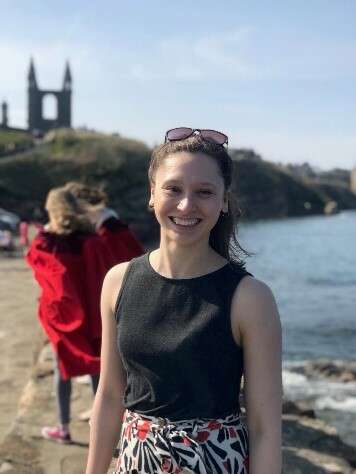
| Name: Lindsey Karmen Hometown: Calgary, Alberta Medical School: Univserity of Edinburgh Bio: After growing up in Calgary, I exchanged my cowboy boots and downhill skis for a raincoat and a new-found love of haggis when I moved to Scotland for medical school. I am thrilled to continue my adventure in Toronto, where summer is a real thing and I don’t need a winter coat in July. Passionate about travelling, my free time is spent planning my dream trip to Antarctica, the last continent on my bucket list. Over the next few years, I look forward to building my skills in both Pre-Hospital Medicine and scuba diving. |
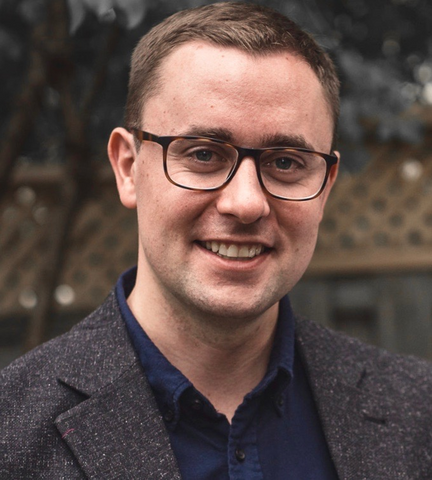
| Name: Fraser Kegel Hometown: Aurora, Ontario Medical School: McGill University Bio: Born in Aurora, Fraser dusted for prints studying forensic science in Windsor before venturing east to McMaster and further east to McGill for medical school. After skiing the Laurentians and trying all of the poutine in Montreal, Fraser is excited to cheer on the Leafs in Toronto. In his spare time, he can be found running new routes around the city and camping and canoeing a few hours north. In the hospital Fraser is interested in simulation, tox, and trauma. |
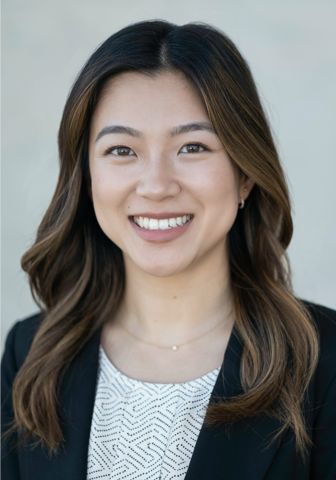
| Name: Marissa Lu Hometown: Mississauga,Ontario Medical School: University of Toronto Bio: Marissa was born in Japan and raised in the suburbs of Scarborough and Mississauga. After a very brief attempt at a music career (read: stage fright), she landed in Toronto for medical school. Hobbies include hiking trips, brunch, running in high-density dog areas and roaming the aisles of Homesense. |
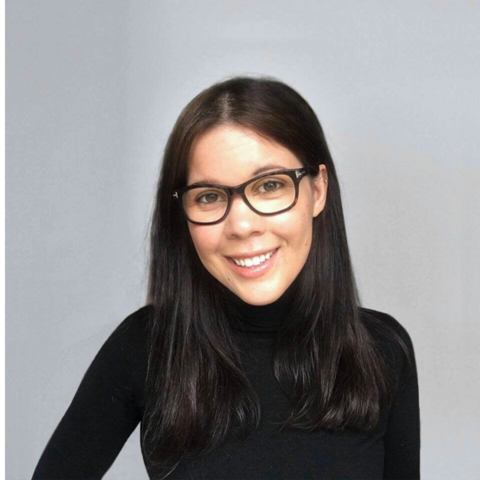
| Name: Nada Radulovic Hometown: Toronto, Ontario Medical School: Queens University Bio: Originally from Serbia, I moved to Canada when I was younger and grew up in beautiful Toronto. After spending four wonderful years in Kingston and discovering my love for waterfronts and patios (minus the mayflies), I’m excited to be moving back home to join the emergency medicine group in Toronto. When I'm not running along the waterfront, I can be found scoping out new coffee shops, hiking, coming up with new sangria recipes or daydreaming about finally getting a dog. |
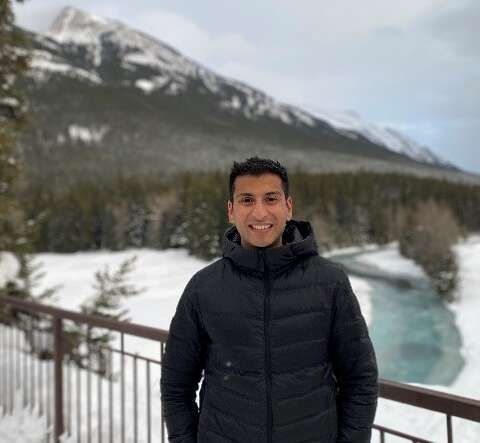
| Name: Faizal Raghavji Hometown: Calgary, Alberta Medical School: University of Limerick Bio: After spending several years in Europe working in healthcare consulting and then completing medical school, Faizal is super excited to return to Canada and start EM! His main research interests include pharmaceutical policy and value-based healthcare. Born and raised in Calgary, he loves the outdoors, sports, the Flames and a good barbecue. He has a terrible sweet tooth and will never say no to candy or baked goods. |
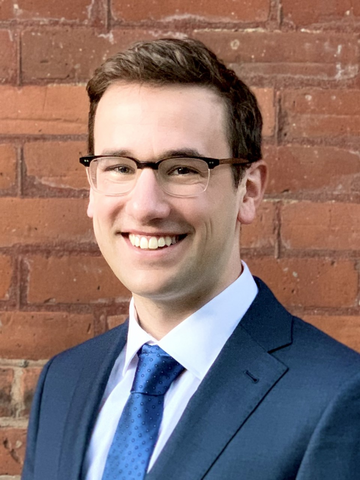
| Name: James Riggs Hometown: Ottawa, Ontario Medical School: Univsersity of Western Ontario Bio: Originally from Ottawa, I found my way to medical school at Western before arriving in Toronto for my Emergency Medicine training. When not in the hospital I can be found riding the roads and trails around the city, working on my espresso shots, or looking for new sushi spots to try. I am ecstatic to be in Toronto, and look forward to making the most of the next 5 years. |

|
Name: Sparsh Shah Hometown: Markham, Ontario Medical School: University of Toronto Bio: I grew up in the GTA and completed my undergraduate degree in business at Ivey before going to medical school at UofT. I’m big on fitness and sports, especially basketball. The Raptors make Toronto the best place to live for me. My academic interests include trauma, free open access medical education, and systems leadership and design. |

| Name: Ali Tabatabaey Hometown: Mashaad, Iran Medical School: Mashhad Azad University Bio: Born in the Iranian city of Mashhad and calling Toronto home, I take joy in crossing borders and defying boundaries. Medicine has taken up the better portion of my adult life, but I have refused to be defined by it. With every chance I eagerly wander off into all that intrigues me- sports, journalism, teaching, research, blogging, volunteering- and always seem to find my way back empowered with new experiences. Joy for me comes from unique experiences of life, discovery, understanding, and solving problems. I cherish the rhymes of classical Persian poetry, as I do the untangling of the coagulation cascade, or even daydreaming about the endless possibilities of artificial intelligence in the emergency department. With a soft spot for hemostasis and thrombosis, and training in health informatics, I look forward to finding my niche and impacting life around me |
PGY2
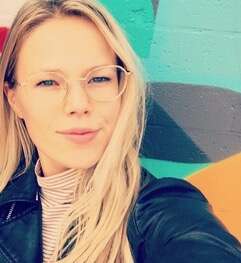
| Name: Molly Allen Hometown: Halifax, Nova Scotia Medical School: University of Ottawa Bio: Just an East Coaster living in a 500 sq ft condo and avoiding bike lanes/traffic by walking everywhere. Before Emergency Medicine, I brought my Canadian ways south of the border to Virginia and over the pond to Austria where I spent most of my time playing soccer. You can now find me in my favourite coffee shops or spending that LOC on restaurants I probably can’t afford. Beyond sports (Go Jays/Raps/TFC…sorry Leafs), medical interests include Sports Medicine and Medical Education.
|

| Name: Priyank Bhatnagar Hometown: Missisauga Medical School: University of Toronto--Missisauga Bio: After growing up in Saudi Arabia and India, I immigrated with my family in 2006. Aspects of emergency medicine that I am particularly excited by are global health/field work and caring for vulnerable populations. When not in scrubs, I enjoy watching any major sport (leafs/raps above all), planning my next travel destination, or scoping out the perfect spot for some amateur star gazing.
|

| Name: Juliana Duffy Hometown: Toronto, ON Medical School: University of Limerick, Ireland Bio: Despite missing Ireland’s easy access to great hiking and cozy pubs, I’m thrilled to be back home to begin my residency in Toronto. Outside of medicine, I’m trying (rather unsuccessfully) to learn German, plant a garden and convince my roommates to foster dogs with me. There’s time for that in residency, right? Feel free to reach out with any questions about the program!
|
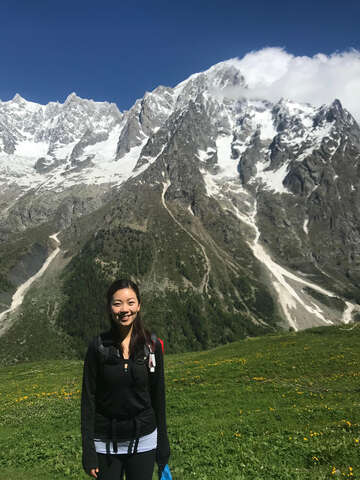
| Name: Sally Kang |
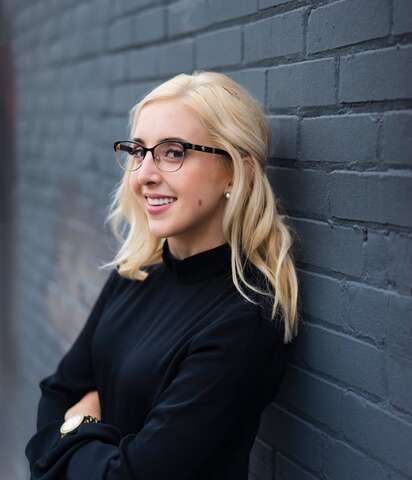
| Name: Jess Kent-Rice Hometown: Laird, ON Medical School: Northern Ontario School of Medicine Bio: Didn’t make it as an extra on CSI so left my former career in Forensics to pursue Emergency Medicine. Was drawn from my rural Northern Ontario life to the big city trauma bay lights where there are no shortage of cool cases and stores are open after 8pm! When I'm not getting lost mountain biking in the Don Valley you can find me out expanding my food horizons past Mac and Cheese. Medical interests include Toxicology, Addictions and Clinical Forensic Medicine. |
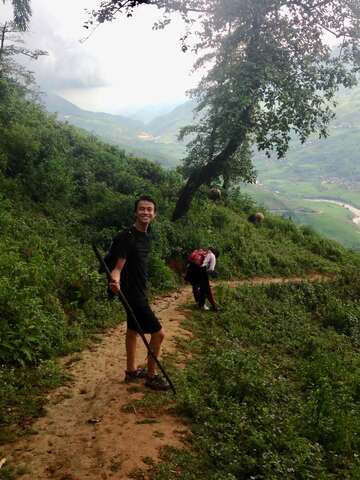
| Name: Jon Kwong Hometown: Toronto, ON Medical School: University of Toronto Bio: Jon grew up in Toronto and returned home for medical school after completing a bachelor’s and master’s degree at Queen’s University. He’s excited to continue to experience all of the festivals, concerts, live sports, and food in his hometown. Jon’s professional interests include Medical Education, Research, and Prehospital Medicine. |
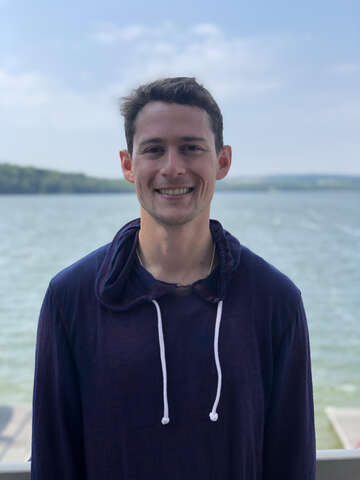
| Name: Etai Shachar Hometown: Toronto Medical School: St. George’s University Bio: Born and raised in Toronto! I spent the last 4 amazing years as a “Pirate of the Caribbean”, as well as living/studying in beautiful New York City and Detroit, Michigan. I love the outdoors, riding my bicycle, travelling, live music, bananas, coffee, and my Indianapolis Colts football team. I am so excited to be home and to be part of the medical community in Toronto. My primary interests in emergency medicine are in trauma, and the role of the emergency physician in inner city healthcare. |
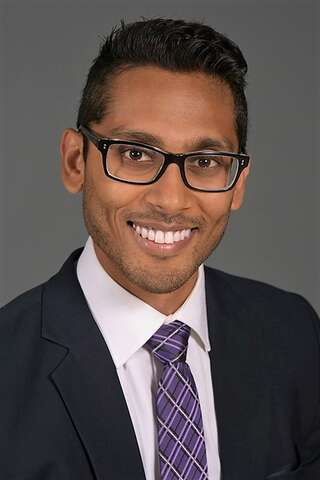
| Name: Arjun Sithamparapillai Hometown: Toronto Medical School: University of Toronto Bio: From the depths of Scarborough to a global health master's in Hamilton, Arjun found his way back to Toronto. As a die-hard Raptors fan since the arrival and departure of Kawhi, he’s added basketball to his passion for track, soccer, squash, and spikeball. Despite being a personal trainer, Arjun can be found skipping gym sessions for junior chickens. Known on the CaRMS tour for his moves on the dance floor and an unfortunate anaphylactic reaction, Arjun soon realized there was no place like Toronto to continue his work in sports medicine, medical education, and global health. |
Name: Arthur Welsher Hometown: Richmond Hill, ON Medical School: McMaster University Bio: Born in the burbs of Toronto, Arthur chose to make the far journey West to Hamilton, ON to complete his undergraduate studies. He loved it so much he decided to stay for a total of 8 years before venturing back to the 6ix. Since retiring from the sport of rugby, Arthur enjoys running, playing beach volleyball, and hitting the ice. He is also interested in all thing’s simulation! |
PGY3
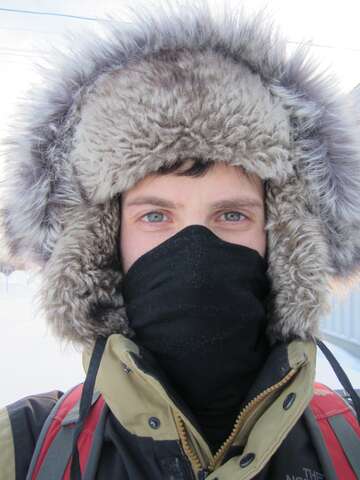
| Name: Henry Ajzenberg Hometown: Thornhill Medical School: Queen's Bio: Born and raised in the sprawl, for several years Henry has been trying out different cities on Lake Ontario, including Hamilton and Kingston, before landing in Toronto. In his spare time, you can find Henry riding his bicycle, reading a good book, or writing about himself in the third person |
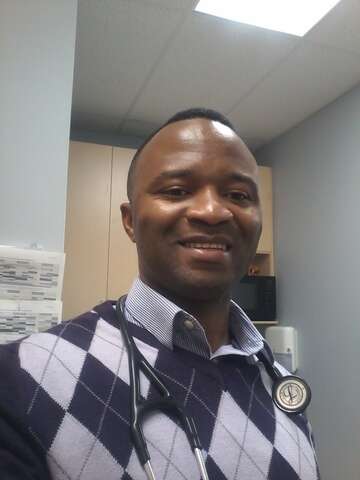
| Name: Phillip Amoabeng Hometown: Bibiani, Ghana and Burnaby, BC. Medical School: James Cook University, Australia Bio: I was born in Ghana and immigrated Vancouver in 1996. Its a privilege to be part of the U of T EM. I enjoy spending time with my young family: my wife Nicole and three precious children, Jeremiah, Hannora and Shiloh. I also enjoy playing most team sports, hiking and trail running. |

| Name: Nick Arrotta Hometown: Edmonton, Alberta Medical School: Trinity College Dublin, Ireland Bio: Nick, born and raised in Edmonton, is a huge Oilers fan. He also loves The Simpsons and anything to do with airplanes. Toronto is his dream residency location due to the diverse population, high-acuity patients, and world-renowned training. |

| Name: Julianna Deutscher Hometown: Edmonton/Red Deer Medical School: University of Alberta Bio: Still adjusting to the big city life after the jump over from Alberta, but feeling very welcomed by the U of T EM family. Within EM, I have a special interest in advocating for vulnerable populations as well as international work and flight medicine. Beyond global health, I enjoy playing guitar and being outdoors including discovering that you can in fact surf on the Great Lakes- although co-residents threaten to form you when you paddle out in December.
|
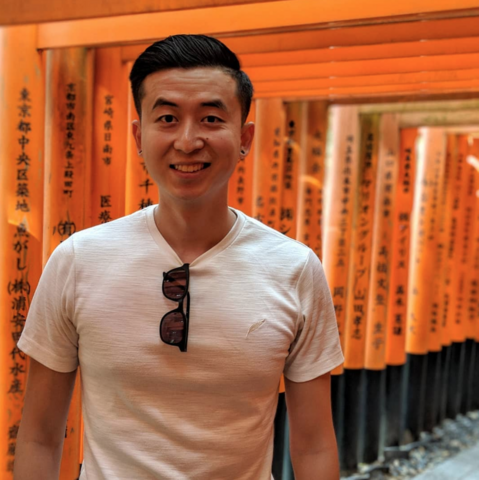
| Name: Kirby Ding Hometown: Scarborough, Ontario Medical School: University of Toronto Bio: In his free time, Kirby can be found either getting sunburnt playing beach volleyball, watching The Office (for the 12th time), or spending his hard-earned LOC on backpacking trips. As a dedicated Raptors fan, he has developed sophisticated coping mechanisms for the teams’ annual disappointment which has proven to be very helpful so far in residency. |
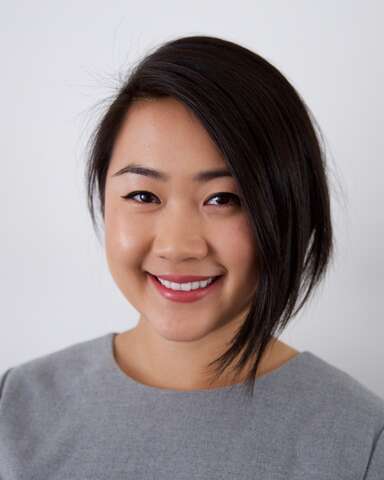
| Name: Winny Li Hometown: Whitby, ON Medical School: University of Toronto Bio: Winny is known to love her cats as much as she loves resuscitations. In her free time, she can be found getting gains at the gym, smothering her two cats with unsolicited love, (attempting to) snowboard, and discovering new dive spots around the world. |
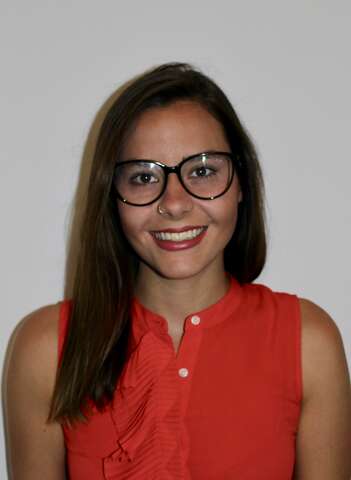
| Name: Victoria Myers Hometown: Essex, Ontario Medical School: University of Ottawa Bio: Victoria is so excited to be in Toronto for residency! You can easily spot her on Dundas West eating Bibimbap, going for a run along the waterfront, or catching a concert by Toronto’s very own, Dwayne Gretzky. At the hospital, she loves to chat about inner-city health in the ED. |
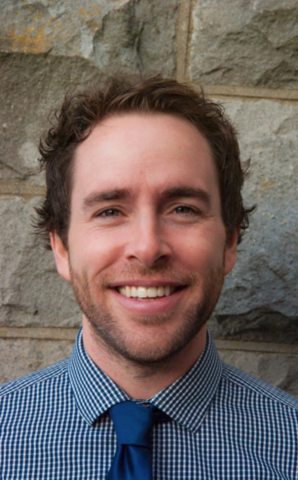
| Name: Colin Rafferty Hometown: Waterloo, Ontario Medical School: University of Limerick, Ireland Bio: Outside the emergency department I enjoy running, hiking, and biking in the summer and snowboarding and hockey in the winter. I'm interested in innovative healthcare technology and how it will shape the future of medicine. |
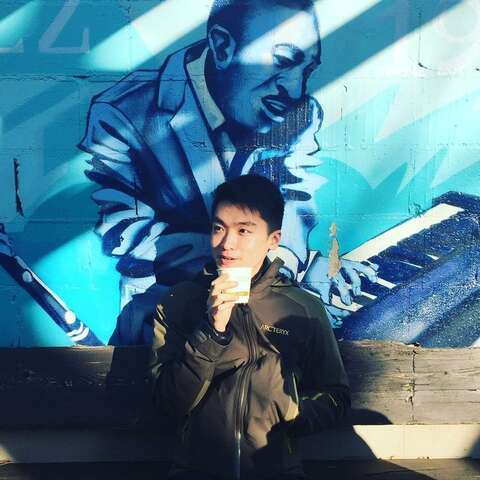
| Name: Kingsley Shih Hometown: Anmore, BC Medical School: UBC Bio: Born and bred in BC, I love my skiing and rock climbing. I'm excited to get cultured in Toronto and eat my way through the city over the next 5 years! Currently making my way around the world East to West one trip at a time. |
PGY4
Name: Wes Armstrong Hometown: Hamilton, Ontario Medical School: Dartmouth College Bio: EM residency has been an amazing experience! Our program provides a great balance of work and lifestyle, and Toronto has endless opportunities both within and outside of emergency medicine. My academic interests include Sports Medicine, Ultrasound, and Medical Education. Outside of work my hobbies include: Hockey, golf, and skiing. | |
Name: Shannon Chun Hometown: Toronto Medical School: Queen’s University Bio: Despite being born and raised in the 6ix, Shannon found himself oddly having to defend his Toronto street cred status growing up with his (previous) 905 area code phone number. He ran away from the literally one thousand other life science students at U of T to settle in the picturesque limestone town of Kingston, ON for medical school. After four years of tricolour pride, he was ecstatic to join the emergency medicine family here in Toronto. In addition to being home, he has found lots of things in the city to distract him from studying Rosen’s. Outside of the hospital, you can find him hanging in a karaoke bar, bopping in a dance class, or curating his Instagram feed. Otherwise, he tries to find time to dabble in critical care and global health when he isn’t busy sleeping off his post-call delirium. | |
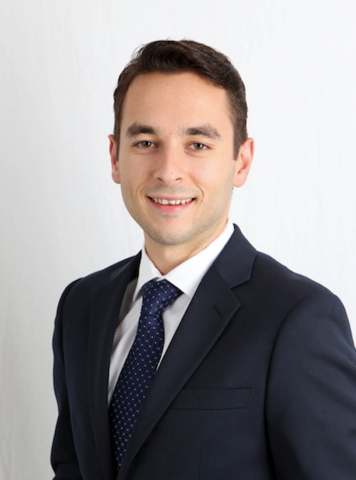
| Name: Gerhard Dashi Hometown: Toronto Medical School: Queen’s Bio: Gerhard is a PGY2 with an interest in medical education. His favorite aspects of EM are the diversity of cases and the flexibility. In his free time, Gerhard can be found playing soccer or running around the lake. His favorite thing about Toronto is the number and variety of dogs! |
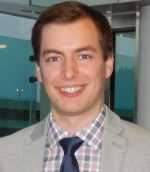
| Name: Neil Hamilton Hometown: Bedford, Nova Scotia Medical School: Memorial University of Newfoundland Bio: Originally from the East Coast, Neil is scared and confused by the loud noises, traffic, and long line-ups. Upon moving to the big city, he swapped his car for a transit pass, and traded road rage for a decent Spotify playlist. He was voted "most likely to get lost on the TTC" and "least likely to be allowed to DJ at your party" by his peers. He breaks up the pace of city living by occasionally getting out of cell tower range. He likes Toronto for the people, the proximity of pizza, and the superior weather. It doesn't snow in May here.
|
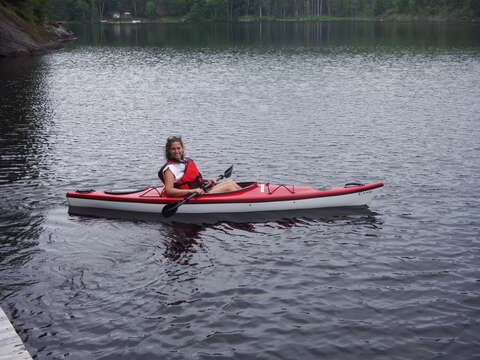
| Name: Karyn Medcalf Hometown: Toronto, Ontario Medical School: University of Toronto Bio: When not in the hospital, Karyn can be found perfecting the cheese to chip ratio for nachos (spoiler alert, its 95% cheese), swimming, hiking, kayaking and travelling. |
Name: Anton Nikouline Hometown: Moscow, Russia/Mississauga, Ontario Medical School: University of Toronto Bio: Born in the cold tundras of Russia, Anton was able to find warmth between the tall buildings of Toronto. You can find him during the week playing volleyball, hockey, basketball or full contact innertube water polo with some of the other residents. Hobbies include backpacking, photography and trying to control his enthusiasm. | |
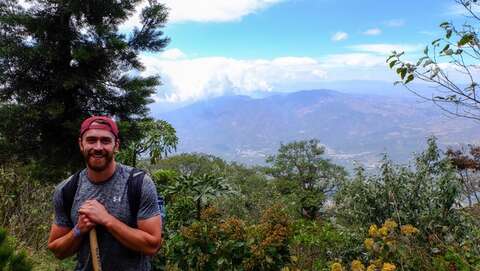
| Name: Andrew Quirion Hometown: Thunder Bay, Ontario Medical School: University of Queensland, Australia Bio: Small town kid living it up in the big city. Always trying to find the appropriate exercise to taco/beer ratio, all about that work/life balance. Hobbies are sports (go raps), traveling, food and all that basic stuff. |
PGY5
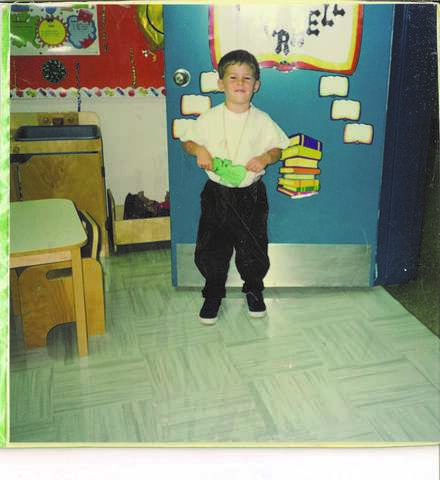
| Name: Andrew Cameron Hometown: Ottawa Medical School: Queen’s Bio: My perfect day? Thanks for asking. Wake up at the crack of 10:00 am, play 18 holes of golf, come home to a pack (swarm?) of puppies, unbox a few pairs of exclusive sneakers, dinner with my wife at Momofuku, gelato, a quick nap, and head in for a productive night shift. Only one of those things isn't true, and it definitely isn't the sneakers." |
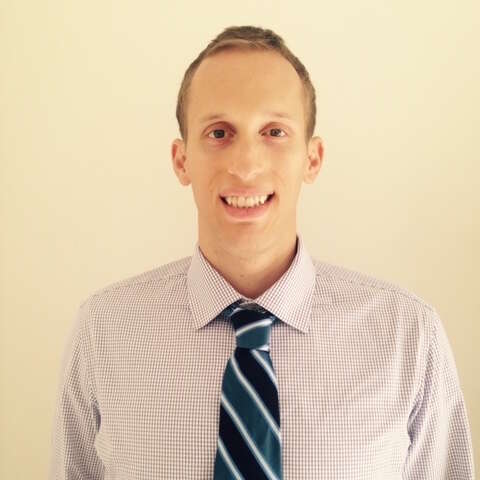
| Name: Michael Crickmer Hometown: Kingston, Ontario Medical School: Limerick, Ireland Bio: While born in Kingston, my family moved out west early on to Vancouver where I grew up Skiing, Windsurfing, Surfing, and Hiking. I did my undergrad at UBC before moving to Ireland for medical school and now to Toronto for Residency. UofT Emergency Medicine has been a wonderful experience with incredible faculty and a great resident group that I'm proud to call my colleagues and friends. |
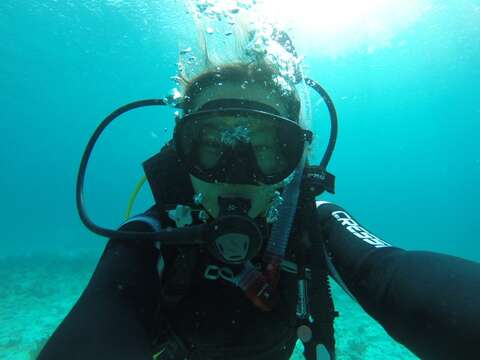
| Name: Lorraine Lau Hometown: Montreal Medical School: Université Laval Bio: Adventure-seeker, scuba enthusiast, a huge foodie, dog lover |
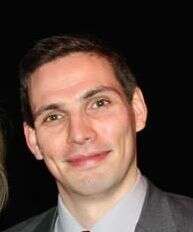
| Name: Scott McGilvray Hometown: Ottawa, Ontario Medical School: Flinders University, Adelaide, Australia Bio: I'm a PGY 3 resident presently enjoying the summer in Toronto. I enjoy reading, soccer, and spending time with my family. My favorite part of living in Toronto is the variety of experiences, whether it be sports, food, or entertainment. Fun fact - was a Zamboni driver in a past life. |
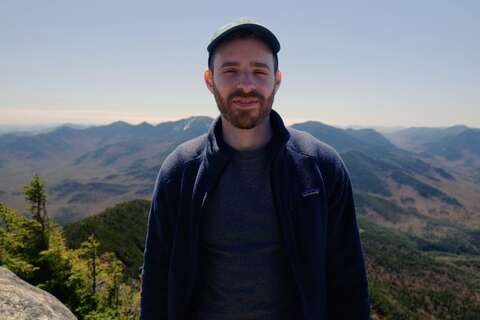
| Name: David Smith Hometown: Thornhill Medical School: UofT |
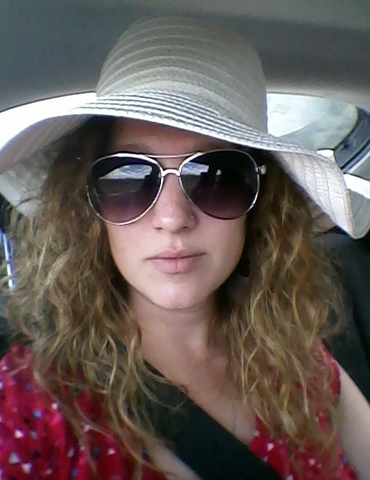
| Name: Jessica Timmings Hometown: Brampton, ON Medical School: University College Dublin; Dublin, Ireland. Bio: Jessica is writing this profile from a medieval cottage in a fortified hilltop village in France. In her more mundane life, she reads too many novels (seriously. Too many.) which is partly why she kicks so much butt at Jeopardy (seriously. So much butt.) She likes to bake and is, therefore, a great resident to work with around Christmas, especially on evening/night shifts. Fun and amazing things about Jessica include: she loves cats (LOVES) but is severely allergic and obviously the victim of some cosmic joke. She intends to pursue a Master’s degree in Disaster Medicine, which will allow her to pursue her passion and also to add “Master of Disaster” to her formal title. She is the only known resident to have successfully grown a pineapple indoors. |
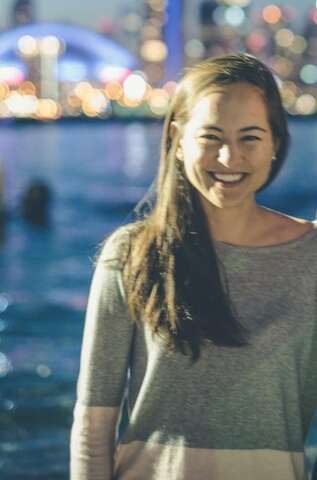
| Name: Alanna Wong Hometown: Toronto Medical School: University of Toronto Hobbies: Travelling, board games, outdoor activities, rock climbing, dystopian novels |
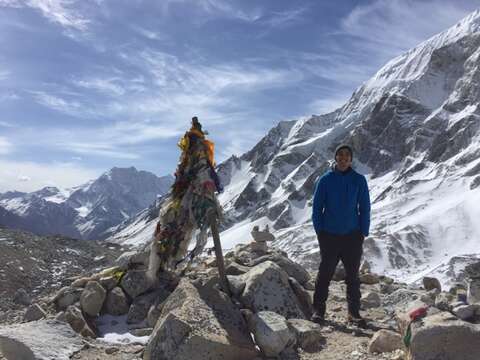
| Name: Kealin Wong Hometown: Regina, SK Medical School: U of T Hobbies: Anything outdoors, Travel, Food. Hockey, Baseball, Cycling. |
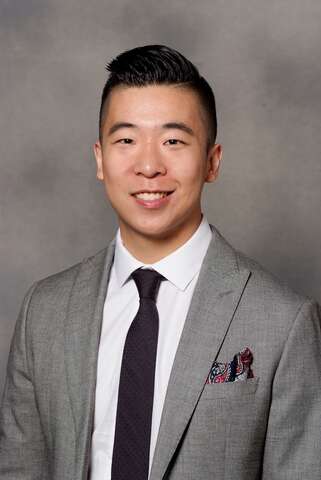
| Name: Calvin Yeh Hometown: Toronto Medical School: McMaster University |
Meet our Faculty and Residents - Zoom Room Signup

FAQ from Zoom Rooms with Faculty and Residents
Program
1. How much time do you spend at different hospitals?
- We rotate through five core emergency rooms- North York General Hospital, Sunnybrook, St. Mike’s, and University Health Network (Toronto General and Toronto Western)
- By the end of your 5 years you spend roughly the same amount of time at each place on Emergency Medicine
- Our off service rotations are often at specific hospitals. For example, orthopedics is always done at Sunnybrook because you get great exposure to orthopedic trauma. Obs/Gyn and Peds Wards are always done at North York because there are amazing bread and butter cases and a small learner:staff ratio as it is a community hospital.
2. What are some standout rotations?
- Our trauma learning experience is incredible. We have two large trauma centers in the city that see an incredibly high volume of trauma- up to 15 traumas a day. There is nowhere better to get TTL and hands-on experience.
- Each emergency room has its own unique patient population that makes up a significant part of the visits:
- St. Mike’s has a large inner-city health with significant addiction medicine and mental health comorbidities.
- Toronto General is a transplant center and sees many patients with transplant complications and comorbidities.
- Sunnybrook has a large elderly population and oncology population.
- North York General is a community hospital which sees a number of children, and lots of bread and butter emergency medicine.
3. How do you keep track of the 100s of staff?
- We are lucky to have a great group of staff that are very involved with the residents! Even if you have not worked with a staff before in the ED you have likely been taught by them at academic day or met them at one of our many social events.
- Even when you are off service staff will bring you into interesting cases or grab a snack with you! You always feel at home in the ED.
4. What is academic day like?
- We have an academic full day every Wednesday! In the morning we have Rosen’s Rounds where we cover two chapters from Rosen’s and then we have resident or staff presentations after Rosen’s Rounds. Every resident does a presentation every year.
- In the afternoon we have small group sessions that vary week to week but include SIM, epidemiology, ethics, QI, and geriatrics.
Extra-curriculars
1. What kind of teaching opportunities are available
- There are lots of teaching opportunities to get involved in! We have the opportunity to teach medical students formally as tutors for their courses as well as less formally as part of the Emergency Medicine Interest Group.
- There are lots of learners in Toronto so as you become more senior you will have the opportunity to teach medical students and junior residents on shift which is an amazing opportunity!
2. What kind of research is going on in Toronto?
- You can find research in any topic you are interested in! Whether it be QI, EMS, toxicology, addictions, etc. there are physicians doing research in this area. We are fortunate to have access to great research resources and staff.
Social
1. What do Toronto residents do for fun?
- A little bit of everything! We have incredible cuisine with new restaurants also opening up. The music scene is great with both small and big shows playing across the city every night of the week.
- If you want to hit up the outdoors we have some amazing spots- bike or run on the Don Valley trail, catch a wave (yes, we’re serious) at the Scarborough Bluffs, or head just outside of the city to cottage country.
- Check out the "Things to Do in Toronto" accordion below.
2. What is the social atmosphere like?
- We love our big family! Our residents hang out all the time unofficially at trivia nights, pubs, or getting some exercise. Lots of our residents have dogs and families of their own so there are activities to suit everyone. If you don’t have a lot of spare time that is okay too! Because there are so many of us there is a wide variety of social involvement.
- Officially each year we have a summer and a winter retreat for resident bonding. Outside of that we also have an annual golf day (it’s okay if you’ve never swung a club- lots of us haven’t either!), welcome BBQ for the new PGY1s, and more Christmas parties than physically possible to attend (each hospital has their own!).
Tour our Clinical Sites
Tour videos to come
Things to do in Toronto
Due to COVID19, many of you are unable to visit Toronto to see what it has to offer as your future home. The residents have put together a little map of some of their favorite spots around the city so you can get a taste of the sights and see what Toronto is like outside of the hospitals.
Find out more about our Program
Speak to a UofT EM Representative or Attend Rounds
Email a resident representative | PGY1 Representative Priyank Bhatnagar | 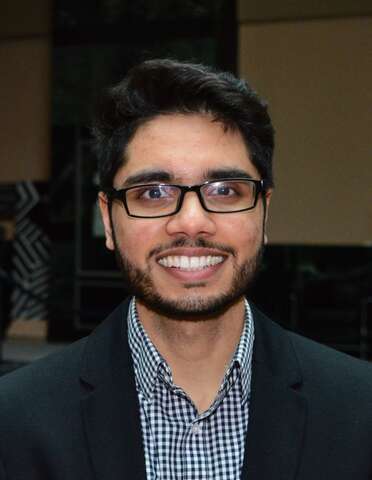
|
Book a meeting with our Assistant Program Director email program.em@utoronto.ca to book | Kaif Pardhan, MD, FRCP(c), Lecturer Residency Program Assistant Director Royal College Emergency Medicine Program Division of Emergency Medicine | 
|
Attend Rounds | You are also welcome to attend emergency medicine academic days (excluding any rounds titled TTD or FOD). Email our Program Administrator to receive details and the Zoom link information. | 
|
Follow on Social Media
Follow us on Twitter | Add Twitter Feed |
Check out our Instagram emuoft | https://www.instagram.com/emuoft |
| View the Previous CaRMS Youtube Videos |
Program Leadership and Contacts
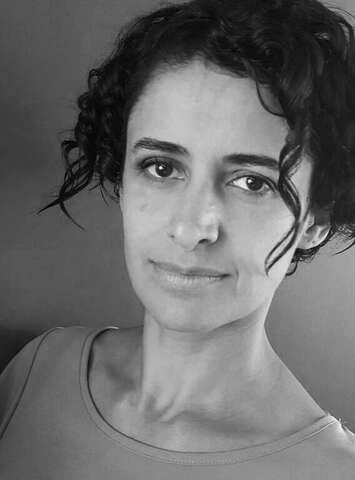
| Nazanin Meshkat, MD, MHSc, FRCP(c), Associate Professor Residency Program Director Royal College Emergency Medicine Program Division of Emergency Medicine |
|
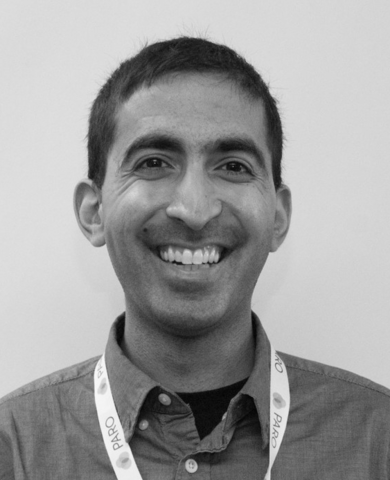
| Kaif Pardhan, MD FRCPC, |
|
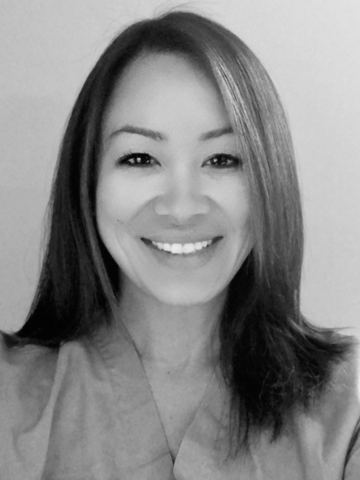
| Jennifer Chu, MD, MPH, FRCPC, |
|
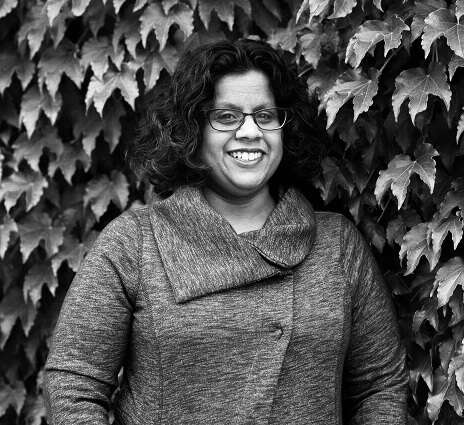
| Ramona Zacharias |
|
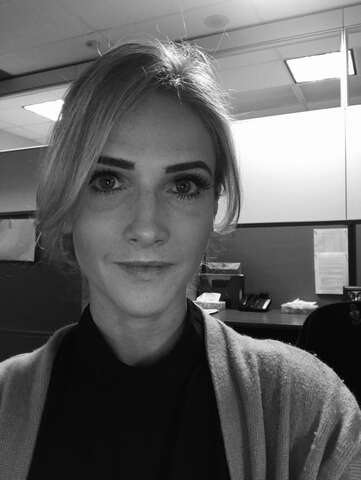
| Jenn Robertson Department of Medicine | Contact for:
|
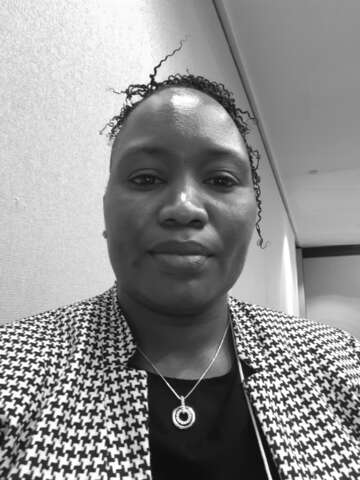
| Hellen Partaat Department of Medicine | Contact for:
|

| Lead Residents 2020/21 |
|
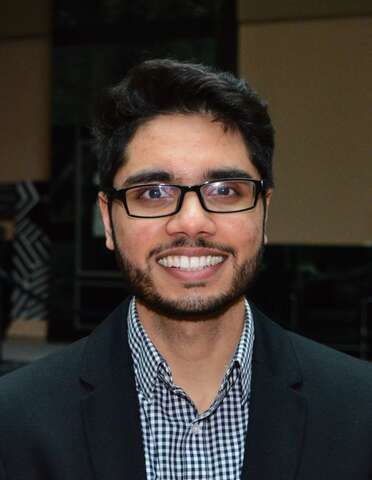
| Junior Resident Representative 2020/21 |
|

| PGY1 Representative 2020/21 |
|
Academic Day
Our program has one full academic day per week (Wednesday). Attendance at the academic day (both morning and afternoons) is mandatory.
Attendance Policy
Please refer to this document for the full attendance policy
Transition to Discipline
New as of July 2018, PGY1 residents will have a dedicated 3 block academic day with tailored sessions – lectures, workshops and simulation. Dr. Rob Simard is the TTD academic lead. Here is a link to the schedule.
Foundation of Discipline
Upon completion of the TTD academic day sessions, the PGY 1 residents will join the rest of the residents at our academic day, with the exception of Foundation Rounds that are only for PGY1s and run every Wednesday from 8:30-10 am. The Foundation Rounds are led by Dr. Melissa Chacko.
For the remainder of the schedule please link to our Google calendar. We recommend you sync this calendar with your own ical or Google calendar, so changes will be reflected in your own calendars.
Core Academic Days
PGY 2-5’s attend Core Academic Days that consist of morning and afternoon sessions. The morning sessions cover Rosen chapters and a series of other didactic sessions including Grand Rounds. The afternoon sessions consist of small group sessions that cover our longitudinal curricula (see below). Core Academic Days run on a 2 year cycle.
In addition to academic day, residents are required to attend the following mandatory events:
- Critical Skills Day
- Disaster Simulation Day
- Visiting Professor Day
Afternoon Sessions - Longitudinal Curriculum
There are a number of longitudinal academic day sessions that are provided to our residents at different stages of residency:

Full description is found here.
- Journal Club – all years
- Wellness Rounds – all years
- Simulation – all years (note: a separate schedule is sent for simulation so you will know which sessions you need to attend)
- Leadership Rounds – all years
- Advocacy Curriculum - all years
- Clinical Epidemiology and sessions on Foundations of developing a Resident Academic Project – end of PGY 1
- Ethics – PGY 2
- Quality Improvement – PGY 2, 3, 5
- Geriatrics – PGY 3
- Administration – PGY 5
Please review the calendar of events details to ensure you attend the sessions which apply to your year.
Vacation/ Leave Requests
- Vacation/Professional Leave Request Process
- Vacation Days Available
- Professional Days Available
- Conference Leave Available
- Holiday/Lieu Days
Vacation/ Professional Leave Request Process
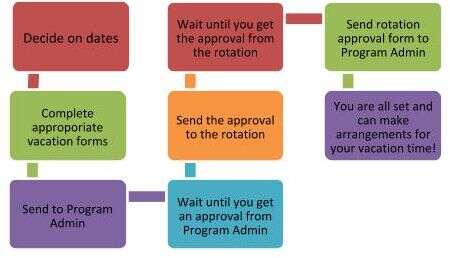
All requests must be confirmed or alternate times agreed to within 2 weeks of the request. Rejections must be in writing with the reason for denial. There can be no blanket policies restricting the amount of vacation in any rotation.
Our emergency program requires that you submit a leave request form for all leave requests (vacation, professional days, etc.). There are several forms, choose the appropriate form.
- Vacation, Professional days, Lieu days, Float Days Request Standard Form (updated June 2021)
- Neuro, IM, MC, ICU, CCU etc. Vacation/Leave Form (updated May 2021)
- Additional Professional Day Request Form for Conference Attendance (updated May 2021)
These requests must be initially approved by the program office and then subsequently submitted to the respective rotation.
You are responsible for the submission to both the program and to the rotation. Once the form has been completely approved, you are responsible for submitting it back to the program office. When planning your vacation, please consider mandatory program events, during which you may not be granted vacation (example include examinations, our annual research day etc.).
Vacation Days Available
4 weeks (a week is 7 days which includes 5 working days and 2 weekend days) of paid vacation per year (no carry-over).
- Vacation, Professional days, Lieu days, Float Days Request Standard Form (updated June 2021)
- Neuro, IM, MC, ICU etc. Vacation/Leave Form (updated June 2020)
Professional Days Available
Maximum of 7 working days per year (note: weekends are not considered “working days” for this purpose). You DO NOT need to be attending a seminar or course to take them. Unlike vacation days, you can break up these 7 days into individual days to be taken separately.
- Vacation, Professional days, Lieu days, Float Days Request Standard Form (updated June 2021)
- Neuro, IM, MC, ICU, etc. Vacation/Leave Form (updated June 2020)
Conference Leave Available
As of July 1, 2018, if a resident is going to present their academic work at more than one program-approved conference (which requires travel) in one academic year, they can be given three additional professional days for each additional conference (up to two additional conferences) per academic year. If they present at one conference, there are no additional professional days given. In order to submit a request for 3 additional professional days to present your academic work, please submit “Additional Professional Day Leave Request Form” to the program for approval.
- Additional Professional Day Request Form for Conference Attendance (updated May 2020)
Holiday & Lieu Days
All house staff are entitled to the following recognized holidays:
- New Year’s Day
- Family Day
- Easter Friday
- Victoria Day
- Canada Day
- August Civic Holiday
- Labour Day
- Thanksgiving Day
- Christmas Day
- Boxing Day
- One Floating Holiday (to be picked by the resident)
All house staff are entitled to 5 consecutive days off during the 12-day period encompassing Christmas Day and New Year’s Day. These 5 days account for Christmas Day, New Year’s Day, Boxing Day, and two weekend days. Each resident must get either Christmas or New Year’s Day off.
Lieu Days are granted for residents who are scheduled to work on any recognized stat holiday (or any part thereof, including being on call the day before). Lieu Days must be taken at a mutually agreeable time within 90 days of the holiday worked. No lieu days for Christmas Day, New Year’s Day, or Boxing Day (this is included in the 5 days off over the holiday period).
Lieu days may not be used for a 1:1 shift reduction on shift-based rotations. Lieu days, in combination with professional days, may be used for shift reductions as follows*:
- 1 day = No Shift Reduction
- 2/3 days = 1 shift
- 4 days = 2 shifts
- 5 days = 3 shifts
- 6/7 days = 4 shifts
* Note: This is not based on the collective agreement, but was agreed upon by both PARO and EMRTC.
Religious Holidays
If you observe religious holidays that are not specifically listed in the PARO-CAHO Collective Agreement, your program may have a duty to accommodate your religious practice to the point of undue hardship (“undue hardship” may include a number of factors, such as patient safety, the hospital’s service requirements, and the resident’s educational/training requirements).
It is your responsibility to request an accommodation with a reasonable amount of notice, explain what measures of accommodation are required, and allow a reasonable time for a reply. Since each request is unique, religious accommodation is typically worked out on a case-by-case basis. In some cases, it may be possible to switch statutory holidays listed in the Agreement for your religious holiday. Residents and programs are usually able to come to a mutually agreeable solution once needs are discussed/clarified.
Postgraduate Medical Education Office (PGME) Resources
- PGME Orientation Manual
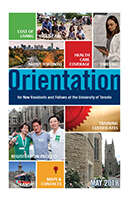
- Office of Resident Wellness
- Payroll
- PGCorED
- PGME Global Health
- Awards and Scholarships
PGME Orientation Manual
Postgraduate medical education office (PGME) at the University of Toronto, also, provides a PGME Orientation Manual
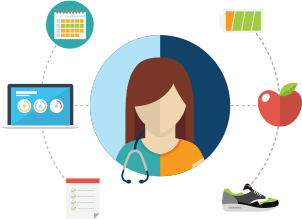
Office of Resident Wellness
The PGME office at the University of Toronto provides services for residents:
- Counseling: Residents are frequently seen for stress management, mental health concerns, challenges with work-life balance, academic problems, career uncertainty, and other issues. We offer the following options for support: PGME Wellness Advisor and referrals to external counselors are coordinated by the Director of Resident Wellness.
- Family doctor registry
- Links to Faculty of Medicine, University of Toronto, and community-based resources
- Half-day and longitudinal workshops that teach you resiliency skills aimed at optimizing your coping skills and resources to combat life’s stressors. You can always check out up-to-date information on current workshops being offered at the Wellness Offices.
Payroll
The Toronto Hospitals’ Postgraduate Payroll Association (THPPA) is the University of Toronto Faculty of Medicine paymaster for most postgraduate medical residents. Information related to salary, call stipends, benefits, insurance, and taxes for new and returning residents can be found on the PGME website.
PGCorED
The University of Toronto Postgraduate Medical Education PGCorED is a series of self-directed multimedia web-based learning modules which covers the foundational competencies for University of Toronto postgraduate trainees. PGCorEd covers topics in the CanMEDS 2015 Physician Competency Framework and is accessible from any mobile device.
New modules in this series will be made available to PGY1 and 2 residents as they are developed. Residents are responsible to complete their PGCorEd modules before the end of their PGY2 year. Check with your Program Director to confirm if there is a program specific sequence or deadlines for module completion.
PGME Global Health
PGME Global Health is committed to being an international leader in the development of and offering coordinated, inter-specialty global health programming and initiatives. PGME’s Global Health initiatives reflect local and global social responsibility and accountability, supporting PGME trainees towards contribution and leadership in global health education, research and practice. Residents in our Emergency Program have the opportunity to take an elective as part of our Toronto Addis Ababa Academic Collaboration – Emergency Medicine (TAAAC- EM) program.
Supports/Mentorship
At the University of Toronto, Division of Emergency Medicine we have multiple forms of mentorship:
Junior Mentor
This is a current PGY-1 who will be a PGY-2 when you start. Each new PGY 1 will be assigned one junior mentor. These residents are in a unique position to assist new residents with their move to Toronto and can answer questions regarding getting situated, registering with the University, transportation, and resident events. This is an invaluable resource.
One-on-One Staff Mentor
Residents get to choose one of the staff FRCP emergency medicine doctors to be their residency mentor. This mentor is responsible for providing career advice as they advance through your training, and for advocating on their behalf should they get into trouble. Generally, a staff member can mentor more than one resident. Most residents choose a staff member with similar career/personal interests. The choice of staff member should be made by the end of your PGY-1 year. Notify your program administrator of who your mentor is. If you need assistance finding a mentor, contact your program Administrator or Assitant Program Director.
Buddy Groups


Each resident can choose to be assigned to a group consisting of residents from each year, as well as up to three faculty from across the division of emergency medicine. PGY2s in each group are responsible for organizing group activities over the year.
Research Supervisor
Your research supervisor (also called a research mentor) is someone with whom you choose to undertake scholarly activities. This person is usually not the staff person you chose to be your Staff Mentor. Dr. Aikta Verma and the Resident Academic Project (RAP) committee can help you find an appropriate Research Supervisor. In the fall of PGY-1, you will be asked to submit your research background and interests to Dr. Verma, so the RAP committee can make useful suggestions for whom might make a good Research Supervisor for each of you.
Do not be afraid to approach different staff persons to be your informal mentors/sound boards. We’re all here to help! If you need help connecting with Faculty or Resident mentors email the Program Administrator
Scholarly Activities

On behalf of the Resident Academic Project (RAP) committee, it is our hope that this will serve as a comprehensive resource for guiding the generation, development, implementation, and dissemination of high-quality scholarly projects. Here you will find a detailed guide on developing a scholarly project, information on project supervisors, resources for research ethics, and project guides and timelines. We will also provide updates on scholarly events such as the annual visiting professor, and academic day.
Perhaps most importantly, contact information for our stellar RAP committee members. As a group we are all committed to your success as young investigators – so please be in touch!
- Resident Academic Project (RAP) Committee Contacts and Bio
- Research Ethics Board (REB) FAQs
- Cycle and Timeline
- Developing Scholarly Project
- Important Forms to Submit
- Site Specific Research Associates
- Resident Research Funding and Statistical Support Opportunities
- Predatory Journal Checklist
- Clinical Epidemiology
- Research Academic Day Program 2018
EM Residency Training Committee (EMRTC)
Full copy of EMRTC Terms of Reference
Mandate
The purpose of the Emergency Medicine Residency Training Committee (EMRTC) is the implementation and maintenance of the Royal College of Physicians and Surgeons of Canada (RCPSC) Emergency Medicine Specialty Training Program in accordance with the General and Specialty Specific Objectives, Training Requirements and Standards of Accreditation outlined by the RCPSC.
Responsibilities
- To maintain a workable yet detailed set of Program and Rotation-Specific educational objectives that encompass personal and professional attributes and attitudes, clinical skills, technical procedures, and knowledge pertinent to the practice of the specialty of Emergency Medicine.
- To ensure that the structure and operation of the Residency Program enable residents to achieve these educational objectives.
- To consider on a regular basis the results of: o Exceptional ITER's o Exceptional semi-annual evaluations o Exceptional FITERs o Exceptional performance on in-training assessments
- To ensure that the residents are kept informed of their evaluations.
- To maintain an appeal mechanism.
- To establish and oversee a mechanism for career planning and counseling.
- To consider on a regular basis the results of exceptional rotation and teacher evaluations
- To undertake a regular overall program review
- To establish criteria for assessing applications to the program, solicit applications, interview applicants, and decide upon a rank order list of applicants
- To discuss residents not meeting standards of the program, and to make recommendations for coaching/remediation including referral to the University of Toronto Board of Examiners
- To oversee implementation of programmatic curricular and assessment changes (including Competence by Design implementation strategies)
Membership
The EMRTC will be composed of:
- Program Director- Dr. N. Meshkat (chair)
- Assistant Program Director- Dr. K. Pardhan
- Hospital Coordinators
- St. Michael’s Hospital- Drs. R. Poley and M. Chacko
- Sunnybrook Health Sciences Centre -Drs. A. Stefan and R. Simard
- University Health Network- Drs. C. Ng and A. Nowacki
- The Hospital for Sick Children- Dr. Natasha Collia
- North York General Hospital - Dr. M. Killian
- Member at Large- Dr. J. King
- Resident Academic Project Sub Committee Chair- Dr. K. Pardhan
- Chief Resident(s) (PGY3)- Annually elected
- Junior Representative (PGY2) - Annually elected
- PGY 1 Resident Representative- Annually Elected
- Ex Officio Members:
- Division Director- Dr. A. Chopra
- Program Director CCFP-EM- Dr. J. Foote
- Department Directors
- St. Michael’s Hospital- Dr. C. Snider
- Sunnybrook Health Sciences Centre- Dr. A. Verma
- University Health Network- Dr. S. Sabbah
- The Hospital for Sick Children- Dr. J. Fischer
- North York General Hospital- Dr. P. Hannam
Educational Funding/Reimbursement
Resident Academic Funds
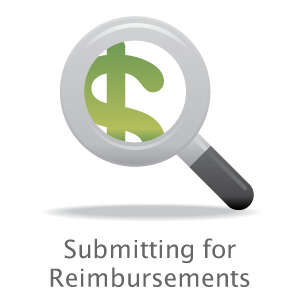

There will be $750/year for use towards academically related purchases. For example, these funds may be used to build your emergency medicine library or to attend conferences (travel, conference fees, etc.). This also includes medical software purchases for your PDA/Smartphone but not for the purchase of hardware. You must keep receipts of your purchases and fill out a reimbursement sheet.
Terms of Academic Reimbursements
- Up to 750 per academic year. Academic funds do not carry over at the end of the academic year. Must be submitted by June 30th. If you need to check if you have funds left check with division.em@utoronto.ca
- Academic Reimbursements apply for educational books; software or apps; conferences in which you are not presenting; travel/accommodation for rotations outside of Toronto; certificate courses/educational courses;
- DOES NOT INCLUDE: laptops; iPads; any hardware purchases; items unrelated to residency education
- If not listed please contact division.em@utoronto.ca to see if it will be approved.
Steps to applying for Academic Reimbursement
- Fill out the Academic Reimbursement Form
- Submit the appropriate supporting documents & original receipts
- The DOM wants original receipts not scans. You can drop them off to me at the DOM. The DOM’s address is located at TGH. It’s 6 Queen's Park Crescet West, C. David Naylor Building, Third Floor. You can either leave it with the Admin at the front or bring it back to me in the office. The office has staff at the front from 9am-5pm
- Supporting Documents/ Receipts (DOM Requirments)
- Digital Receipts- The DOM wants original receipts. If the digital receipt you have is the original that was sent to you. Make a note that is the original copy or send me an email stating it is the original copy. That way we do not have to follow-up with you or the conference/course to find out what type of receipts they provide
- Cash payments- If you paid for something in cash, please note it so we don’t ask for a credit card statement
- Items purchased by Credit Card- if you purchased something by credit card, please include a copy of the statement. Especially if the receipt or statement doesn’t show payment was made and received or how it was paid for.
- Conferences/Courses- You are not able to submit before attending. The DOM wants certificates of attendance or something that confirms you attended. If the Conference/Course does not provide certificates, send the division admin an email stating you attended the conference/course and they do not provide certificates. This will be the additional documentation the DOM will use.
- Someone else bought it for you and you paid them back- Send an email clearly explaining the circumstances when submitting documents. If possible, always pay for whatever you are asking for reimbursement yourselves.
- Split reimbursement- If you and another resident are splitting a reimbursement (eg shared accommodation while on Tox rotation in New York) again send a clear email explaining the split purchases.
- Travel and Accommodation for Rotations outside of Toronto- please include the name of the rotation, dates of rotation, and supervisor while on rotation.
- Supporting Documents/ Receipts (DOM Requirments)
- The DOM wants original receipts not scans. You can drop them off to me at the DOM. The DOM’s address is located at TGH. It’s 6 Queen's Park Crescet West, C. David Naylor Building, Third Floor. You can either leave it with the Admin at the front or bring it back to me in the office. The office has staff at the front from 9am-5pm
Resident Conference Award
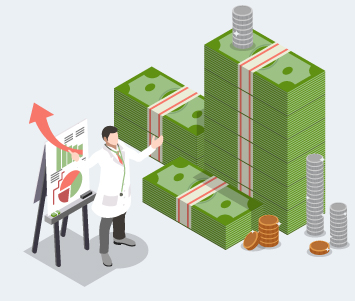

To encourage residents to prepare and present scientific abstracts at national and international conferences, the Division of Emergency Medicine is providing limited financial support to residents whose work has been accepted for presentation.
Terms of Conference Award
- Max one conference submission per year up to $1000 per resident. Funds do not carry over at the end of the academic year. Must be submitted by June 30th, with conference completed in that academic year. If you need to check if you have funds left check with division.em@utoronto.ca
- Resident must be physically present at the conference to receive funding and have proof of attendance.
- The program director reserves the right to decline to provide funding to a resident who will present at a conference determined to be of low academic value or relevance (the resident may appeal this decision to the EMRTC)
- Poster Presentation: $750
- No difference for moderated or not moderated
- “e-poster” (poster without paper): same value as a traditional poster
- Oral presentation: $1000
- Pre-recorded presentation (e.g. at SMACC): same value as an oral presentation
Steps to applying for Conference Award
- Fill out the Conference Award Form
- When filling out the form, make sure to add your Date of Birth and SIN number for payroll purposes. This is an award and must be noted on your taxes. This will be on your T4A in box 28 as an award.
- Submit the appropriate supporting documents
- Residents must provide copies of the letter of acceptance of the abstract(s) following conference peer-review, a copy of the abstract(s), and a conference program confirming the presentation to be eligible for support. Must submit originals, not scans. Receipts are not needed to be submitted. This is a scholarship and must be noted on your taxes. You can drop them off to the Division Administrator at the DOM. The DOM’s address is located at TGH. It’s 6 Queen's Park Crescet West, C. David Naylor Building, Third Floor. You can either leave it with the Admin at the front or bring it back to me in the office. The office has staff at the front from 9am-5pm.
- DO NOT SUBMIT RECEIPTS FOR THIS AS IT WILL BE CONFUSED FOR ACADEMIC REIMBURSEMENTS
Policies/Protocols
Resident Attendance at Academic Day Policy
As adult learners, residents are allowed to miss an academic day for any reason they deem appropriate (including post call, illness, family or personal emergency, balancing wellness, etc.). However, there is a set proportion of days you can be absent. This limit has been set at 20% absences of all mandatory events (with a few exemptions - see the full policy for details). Vacation is exempt in addition to this 20% allowance. If you are going to miss any small group session (all afternoon sessions have 10 or fewer people scheduled to attend), please notify the instructor and the Program Admin as soon as possible so they can plan accordingly.
Please review the full Resident Attendance at Academic Day Policy for additional details (updated September 2019)
Clinical Duty Scheduling and Absenteeism Policy
This policy is intended to describe the rights and responsibilities of residents within the FRCP Emergency Medicine residency training program with respect to scheduling and attending clinical duties during rotations. This policy is to be used in addition to PARO scheduling guidelines. In the case of discrepancies, the most updated PARO guidelines will supersede this policy.
Please review the full Clinical Duty Scheduling and Absenteeism Policy for additional details (updated February 2021)
PGY5 Work-Life Balance Policy
EMRTC recognizes that there are two important considerations for the PGY-5 year:
- To transition PGY 5 residents to practice as high-quality emergency medicine consultants
- To prepare for success at the Royal College Emergency Medicine Examination
Please review the full PGY5 Work-Life Balance Policy for additional details (updated November 2020)
Protocol for Unsatisfactory Resident Performance
This policy is intended to describe the process to be followed in the case of unsatisfactory resident performance in the FRCP Emergency Medicine Program. The program adheres to the Guidelines for Assessment of Postgraduate Residents of the Faculty of Medicine at the University of Toronto
Resident Safety Policy
This policy provides background to the relationship between the University and all Clinical teaching sites with respect to resident safety.
Postgraduate Medical Education (PGME) Office Policies and Guidelines
Department of Medicine (DOM) Policies
Restricted Registration
Are you considering applying for a Restricted Registration License?
Our program has participated in the Restricted Registration program (RR) for a number of years. RR brings many benefits for the residents, and we are happy to support our resident’s involvement in it. Please be advised that obtaining an RR license is a privilege and not guaranteed to all residents. Assessment of resident eligibility to apply for an RR license and approval of the application is at the discretion of the Program Director in consultation with the Competence Committee and EMRTC, and is decided on an individual basis. Our residents are allowed to obtain an RR license in PGY 3-4 in the non-CBD cohort and in PGY 3 (and potentially PGY 5 – subject to change) in the CBD cohort, and are expected to follow the steps outlined below:
- Before starting your application process, please review the requirements on the CPSO and RR website in detail. You are responsible for all steps in the process and complying with the conditions of the RR license.
- Approval will have to be obtained at regularly scheduled Competence Committee meetings.
- Ensure that the RR work does not interfere with the clinical and non-clinical work requirements of the residency program. For example it is not acceptable: to miss academic day, show up late or miss program related shifts, miss mandatory program events etc. to work under a RR license.
- Ensure that any additional hours worked not be done in a fashion which would contravene the PARO-CAHO collective agreement. You are responsible for your wellness and maintaining patient safety standards.
- The Competence Committee reviews your file on a regular basis. Should you fail to maintain academic standing or fail to comply with the above, you will be asked to cease working under the RR license. In the situation were there is non-compliance, the Program Director will notify the RR Program office and the Postgraduate Dean of these concerns and recommend cessation of the RR license. This will be effective immediately and there can be no appeal of this decision. Please be advised that a RR license is a CPSO license, and termination of the RR license will significantly impact your future CPSO licensing applications.
PARO Contract
The purpose of the PARO contract is to provide an orderly employment relationship between Ontario teaching hospitals as represented by the Council of Academic Hospitals of Ontario, hereinafter CAHO, and the residents in these teaching hospitals represented by the Professional Association of Residents of Ontario, hereinafter PARO, in order to facilitate the relationship between residents and hospitals so that housestaff will be reasonably compensated for the duties which they perform as hospital employees, and at the same time be able to take advantage of the training program which each individual housestaff enjoys.
Memberships, Conferences, & Medical Courses
Organizations:
- CAEP - Canadian Association of Emergency Physicians (includes a subscription to the Journal of Emergency Medicine)
- ACEP - American College of Emergency Physicians (includes a subscription to Annals of Emergency Medicine)
- EMRA - Emergency Medicine Residents Association (includes a subscription to Annals of Emergency Medicine)
- TAC - Trauma Association of Canada (includes a subscription to Journal of Trauma)
- OMA/CMA - Ontario Medical Association/Canadian Medical Association (includes a subscription to the CMAJ)
- SAEM - Society of Academic Emergency Medicine (includes a subscription to Academic Emergency Medicine)
Conferences:


Residents who present either oral or poster presentations at conferences national or international conferences can apply for the Resident Conference Scholarship (found in the Educational Funding/Reimbursement dropdown under General Resident Resources)
Toronto (local)
- North York General (www.emupdate.ca)
- University Health Network (www.uhn.on.ca/emergencyconference.asp)
- Sick Kids' Pediatric Emergency Medicine Conference (www.sickkids.ca)
National
- Trauma Association of Canada Annual Scientific Meeting (www.traumacanada.org)
- Canadian Association of Emergency Physicians (www.caep.ca)
- Canadian Critical Care Conference (www.canadiancriticalcare.ca)
- Society of Toxicology of Canada Annual Symposium (www.stcweb.ca)
- Canadian Conference on International Health (www.csih.org/)
International
- International Conference on Emergency Medicine (www.icem2010.org)
- Emergency Medicine in the Developing World (www.emssa.org.za)
- Rocky Mountain Trauma and Emergency Medicine Conference (http://www.rockymtntraumaconf.org/)
Medical Courses
There are several extra courses that you should be aware of:
- BLS/ACLS Provider: This is a must for emergency residents. As a first-year resident, this course is paid for by PGME. Several of the hospitals offer these courses year-round. If you are interested in attending these courses at Sunnybrook, you can contact Sandhya D'Souza at sandhya.dsouza@sunnybrook.ca. Alternatively, you can find all of the courses offered nationally on any given date by logging on to the heart and stroke foundation website.
- ACLS Instructor: This is a useful course if you plan to join the growing number of emergency residents teaching ACLS! Teaching ACLS not only is a good way to make money but it also dramatically improves your cardiac arrest skills. Contact Sandhya D'Souza or the Heart and Stroke Foundation
- ATLS: This course is a useful introduction to trauma care. It is not essential to take this course as most of the material will be covered in Group A lectures. However, it does serve as a good introduction to trauma and would be most valuable if taken before doing your trauma rotation. If you plan on moonlighting as a senior, keep in mind that many of the hospitals do require this certification. Contact Sandhya D'Souza for more information.
- PALS: Sunnybrook has just started to run a PALS course four times annually. Sandhya D'Souza will have more information if you’re interested. During your pediatrics rotation at North York General Hospital (NYGH), you will receive an hour overview of the PALS guidelines. NYGH also offers a Neonatal Resuscitation Course that is valuable to take prior to starting your Pediatric rotation there.
PD Message
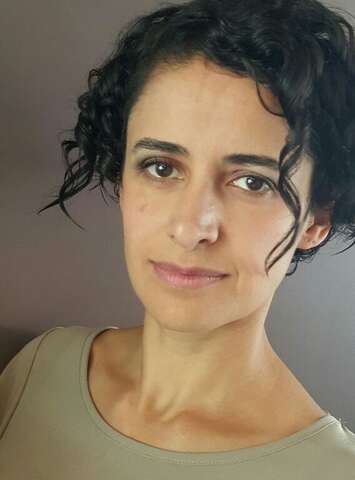 Welcome to the University of Toronto’s Emergency Medicine Program! We are looking forward to getting to know all of our new residents, and play a part in their professional growth in the coming years.
Welcome to the University of Toronto’s Emergency Medicine Program! We are looking forward to getting to know all of our new residents, and play a part in their professional growth in the coming years.

To help residents transition to residency and CBD, we have prepared two orientation packages. One is called the “Orientation and Welcome Package” and includes program administrative items (e.g. policies, vacation requests etc.). The other, called the “Competence by Design Package” includes curriculum and assessment items you will need to navigate in the new world of CBD. Residents should familiarize themselves with both.
Dr. Nazanin Meshkat, PD
Dr. Kaif Pardhan, APD
PGY1 Orientation Manual

Introduction to CBD
What is CBD?
Competence by Design (CBD) is a Royal College of Physicians and Surgeons of Canada (RCPSC) initiative to transition postgraduate medical education and professional practice in Canada into a model of competency-based medical education.
What does that mean to you? There is a shift towards a coaching model of training in lieu of the current performance model. In the coaching model, you will be required to complete formative assessments called Entrustable Professional Activities (EPAs). EPAs are tasks of the discipline that can be delegated to a resident and observed by a supervisor. Typically, each EPA integrates multiple abilities simultaneously (milestones) when performing professional activities (e.g. we use our medical expertise, but also our communication skills). You will learn more on EPAs in the Assessment Section. Here is a link to a CBD Terminology Page for more information
Feedback
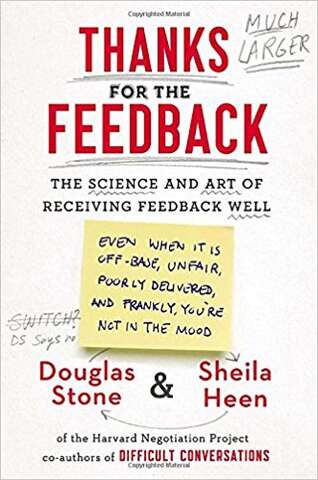

- Moving towards a coaching model will entail being able to receive feedback. Feedback can trigger negative reactions on the part of the receiver if it is perceived as a judgment on personal worthiness. Take a look at this Infographic and reflect on how you perceive yourself. We strongly recommend that you also read “Thanks for the Feedback” by Douglas Stone and Sheila Heen before you start residency and that you continue to refer back to it during your career.
CBD Stages
- Residency will continue being 5 years. It will be split into 4 stages:
- Transition to Discipline (TTD) 3 Months in PGY 1
- Foundations of Discipline (FOD) 9 Months in PGY 1
- Core of Discipline (COD) 3 years PGY 2-PGY4
- Transition to Practice (TTP) 1 year PGY 5
- The Royal College Exam will take place after the Core stage at the end of PGY 4 (instead of at the end of residency). The RCPSC will be providing more information in the coming years.
CBD champions
- Our program has been working hard with multiple stakeholders in the past 2 years to prepare for this transition. We realize that this is a time of change for you, and are here to support you. We will be meeting with you as a cohort on a regular basis to monitor progress. You will also have at your disposal our CBD champions at the different sites (more information will be provided at your orientation session).
Assessments: General Documents
Stage Specific CBD Resident Expectations
As part of CBD residents will be required to complete regular assessments. Here is a link to an overall map of the assessment requirements for all stages.
Entrustable Professional Activities and Special Assessments
EPAs are one component of the assessments and a CBD requirement. Each stage has specific EPAs that are assigned to it (determined by the Royal College Emergency Medicine Specialty Committee), and successful completion at each stage (as determined by Competence Committee) will be required to move from one stage to another. Here is a link to a list of EPAs.Here is a link to the Royal College document for a detailed breakdown. To avoid getting overwhelmed, start by reviewing the first stage (TTD) EPAs (there are only 4!)
- Elentra user guide
- Entrustment Scale
The staff physicians who supervise residents during clinical rotations assess EPAs using the Entrustment Scale. We expect that most of the resident EPAs will be given an “Intervention”, “Direction” and “Supervision” category, and only a few will be given “Autonomous” and “Excellence” especially in the early phase of a stage, and in early years of residency.
Special Assessments are non-EPA assessments that are requirements of the Royal College. Each tool is different, and residents will be provided detailed information on their completion under each stage.
Other assessments are called “Notes to File” and “Professional Behavioural Monitoring Form”.
All these assessments will be completed on the Elentra e-platform, and can be initiated by the resident or their supervisor. In general, we expect that each resident complete at least 1 EPA (or SA tool if applicable) per shift on EM rotations and that as the resident is able, they complete EPAs on off-service rotations.
- Emergency Medicine EPAs – All Stages
- For more details on stage-specific EPA and SA tool completion please refer to the specific sections below – TTP documents will be provided and uploaded to the website at a later date
In-Training Exams
You are required to attend mock orals and written exams as outlined in the Stage Specific CBD Resident Expectations.
Royal College
TTD Stage Assessments
The Royal College requires that residents complete the assessment requirements for 3 EPAs (TTD 1-3) and one special assessment (TTD SA 1) in Transition to Discipline (TTD). For a detailed guideline please refer to the below links
EPAs
SA
OSCE
TTD residents will also be required to complete an Objective Structured Clinical Examination (OSCE) in TTD, based on the TTD EPAs (scheduled in Block 4).
ITARS - See Below
FOD Stage Assessments
The Royal College requires residents to complete the assessment requirements for 4 EPAs (FOD 1-4) and one special assessment (FOD SA 1) in Foundations (FOD). However, in our program residents are required to complete FOD SA 1 in the Core stage. You will also be required to complete Core EPA 14 requirements in FOD. For detailed guidelines on completing these assessments, please refer to the link below:
EPAs
ITARS - See Below
COD Stage Assessments
The Royal College requires residents to complete the assessment requirements for 15 EPAs (COD 1-15) and five special assessments (COD SA 1-5) in Core (COD). However, in our program, residents are required to complete 14 Core EPAs (COD 1-13, and 15). You are also required to complete FOD SA 1 in the Core stage You will also be able to complete FOD EPA 4 in the Core stage. For detailed guidelines on completing these assessments, please refer to the link below:
EPAs
SA
ITARS - See Below
ITARs
ITARS
ITARs, or In-Training Assessment Requirement, are evaluations that your preceptor or rotation coordinator will complete at the end of each rotation. All ITARs are reviewed by the Competence Committee and the PD, and your previous EM rotation ITARs will also be reviewed by the resident's upcoming EM rotation coordinators to help identify areas to coach them on.
Rotations
- CBD Sample Rotation Schedule
- Transition to Discipline/Foundations
- Core/Transition to Practice
- Area of Advanced Learning
We have made a number of changes to our rotation schedule to align with CBD and also to address some identified gaps. For example, residents will be doing more EM rotations in your PGY 1 year under CBD then our previous rotation schedules.
CBD Sample Rotation Schedule
Here is a link to the Master Rotation Schedule for all 5 years. There are 13 rotation blocks in each academic year. A number of rotations are “on service” (i.e. emergency medicine or related rotations such as EMS and Ultrasound), and some are “off service”. Residents will rotate through our core teaching sites, as well as affiliated sites.
- Core sites:
- Sunnybrook Health Sciences Centre (SHSC)
- St. Michael’s Hospital (SMH)
- University Health Network (UHN): includes Toronto General Hospital (TGH) and Toronto Western Hospital (TWH)
- Affiliated Sites:
- North York General Hospital (NYGH)
- Hospital for Sick Children (HSC)
Transition to Discipline/ Foundations
TTD entails the first 3 blocks of the CBD PGY 1 year, and FOD the remaining 9 blocks. Here is a link to a Sample Learner Schedule for TTD and FOD. Residents will each be provided their own specific TTD and FOD learner schedule by email.
In TTD residents do 3 blocks of Emergency Medicine (EM) at one of our core sites (SHSC, SMH, or UHN). In FOD you do 4 months of adult EM (3 at our core sites and 1 at NYGH), 1 Pediatric EM at the Hospital for Sick Children, Ultrasound (includes EM shifts), Sports Medicine, GIM-Clinical Teaching Unit (CTU), Pediatric-CTU and Anesthesia.
Each Rotation has a specific Rotation Plan. Residents should review the Rotation Plans prior to the start of each rotation.
- TTD EM Rotation Plan
- FOD Ultrasound Rotation Plan
- FOD Sports Medicine/MSK Rotation Plan
- FOD Peds CTU Rotation Plan
- FOD PEM Rotation Plan
- FOD Anesthesia
- FOD CTU GIM
For all EM rotations, we have asked that our site coordinators schedule 30% of a resident's shifts with a preceptor. We ask that the resident contact their preceptor and meet them at the start of their rotation, mid-way and at the end of their rotation to discuss objectives and progress. Please be advised that this is a mandatory program requirement. (Clinical Duty Scheduling and Absenteeism Policy)
Core and Transition to Practice
COD entails the full 39 blocks during the PGY2 to PGY4 years. Here is a link to a Sample Learner Schedule for COD. Residents will each be provided their own specific COD learner schedule by email.
In COD, residents do 3 - 5 blocks of Emergency Medicine (EM) at our core sites, 1 in ICU, 2 in Trauma/General Surgery, 1 in Anesthesia, 1 in Psychiatry, 1 in OB/GYN, 1 in Orthopedics, and 1 in Pediatric Emergency Medicine at SickKids. The number of EM blocks completed is dependent on their Goal Directed Experiences (GDE). The GDE replaces the traditional “electives”. You can see that it is included in the Master Rotation Schedule More details will be provided about the GDE at a later date.
- GDE request form (Updated May 2020)
Each Rotation has a specific Rotation Plan. Residents should review the Rotation Plans prior to the start of each rotation.
- COD Anesthesia
- COD EM - Junior
- COD-EM- Senior
- COD ICU
- COD OB/GYN
- COD Orthopedics
- COD PEM
- COD Psychiatry
- COD Trauma/General Surgery
- COD Advanced Ultrasound
- COD Toxicology
- COD EMS
- COD Peds and Community Anesthesia
The details of the TTP rotations will be finalized in the next couple of years. We will provide residents with Rotation Plans TTP closer to the date.
Area of Advanced Learning
In the past, residents in our program were provided with 1-year (PGY 4) to pursue an Area of Advanced Learning (AAL). Due to CBD requirements, this has changed to 6-7 months, and the nature of the AAL will depend on progression through the CBD stages. We will provide residents with more details as we monitor progress.
Competence Committee
- Competency Committee & Program Director Meeting Schedule
- Personal Learning Plan
The Competence Committee (CC) is responsible for making overall assessments for each resident, and recommendations regarding promotion, coaching and remediation, at multiple time points throughout residency (CC Terms of Reference). The committee is made up of faculty members from each of the core sites. The PD also sits on this committee.
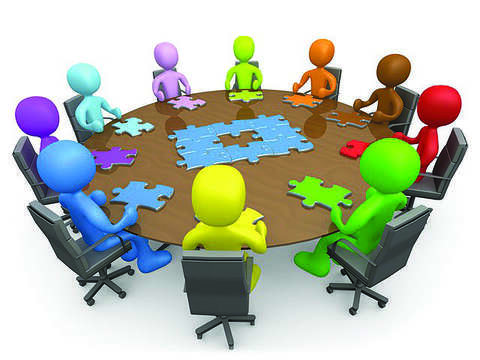
- Jennifer Chu (Chair)
- Nazanin Meshkat (Program Director)
- Kaif Pardhan (Assistant Program Director)
- Martin Horak (St. Michaels Hospital Staff)
- Emily Austin ( St. Michaels Hospital Staff)
- Dana Phillips (Sunnybrook Health Science Centre Staff)
- Dennis Cho (University Health Network Staff)
- Tim Dalseg (University Health Network Staff)
- Walter Tavares (Scientist at the Wilson Center) - observer
They use all the assessments described above (e.g. EPAs, ITARs, exams, Notes to File, etc.), as well as other relevant criteria (e.g. attendance records, emails to the PD), to make decisions. Every resident will be reviewed by the CC at least two times per year. The CC provides their overall assessment and recommendations to the EMRTC and PD. The PD will meet with the resident (after the CC meeting) to review these recommendations (link to CC and PD Meeting Schedule). Residents will be required to prepare a Personal Learning Plan before meeting the PD, and send to the PD 2 days before your scheduled meeting.
Royal College Specialty Training Requirements/Curriculum in EM
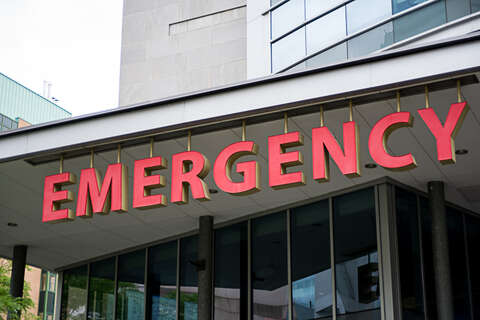
Royal College Specialty Training Requirements/Curriculum in EM
Rotations
- 5 Year Sample Rotation Schedule - Non CBD
- Internal Medicine/MedConsult: Report to
- Elective Requests Form
- Rotation Goals and Objectives
Master Rotation Schedule for Non-CBD Residents
Here is a link to the Master Rotation Schedule for all 5 years for Non-CBD Residents. There are 13 rotation blocks in each academic year. A number of rotations are “on service” (i.e. emergency medicine or related rotations such as EMS and Ultrasound), and some are “off service”. Residents will rotate through our core teaching sites, as well as affiliated sites.
Core sites:
- Sunnybrook Health Sciences Centre (SHSC)
- St. Michael’s Hospital (SMH)
- University Health Network (UHN): includes Toronto General Hospital (TGH) and Toronto Western Hospital (TWH)
Affiliated Sites:
- North York General Hospital (NYGH)
- Hospital for Sick Children (HSC)
Internal Medicine/Medical Consult Rotation:
Rotation Request Form
Each year, around February, Residents will be contacted by the Program Administrator to submit a Rotation Request Form (updated Spring 2020) for their rotations for the next academic year. The program will try an accommodate requests where possible.
Elective Requests
When choosing an elective that is not arranged by the programs, Residents must complete the “Elective Request Form” and submit this form to the program for approval. Upon receiving approval, the program will provide a paper evaluation (ITER) to the resident for their elective supervisor to complete at the end of the rotation. The resident can then confirm their elective rotation with the rotation site.
Rotation Goals and Objectives
The Rotation Goals and Objectives are reviewed annually. This includes Rotation Goals and Objectives for Emergency and Off-Service Rotations for Emergency Medicine Residents.
PGY4 Area of Advanced Learning/ Subspecialty
The University of Toronto provides an opportunity for a non-CBD PGY 4 advanced area of learning (AAL) year, in which each resident personally designs an AAL curriculum. This curriculum must abide with the Royal College Emergency Medicine committee requirements and be submitted to and approved by the EMRTC during the PGY 3 year. Residents should review the Subspecialty Policy gain clarity and guidance regarding the requirements for the AAL year.
Residents will be asked to fill out the Subspecialty Form in the early fall of their PGY3 year.
In the past, areas of focus have included: pediatric emergency medicine; Masters of Clinical Epidemiology; Masters of Medical Education; Masters in Health Administration; inner city health; international health; toxicology; trauma; critical care medicine; sports medicine; prehospital care; medical informatics; research; aeromedical transport; clinician-scientist program; bioethics; international emergency medicine; ultrasound; simulation, and geriatric emergency medicine.
Resident Rounds/ Learning Opportunities
Our program has one full academic day per week (Wednesday). Attendance at the academic day (both morning and afternoons) is mandatory.
Attendance Policy
Please refer to this document for the full attendance policy
Please review scheduled session on our Google calendar. We recommend you sync this calendar with your own ical or Google calendar, so changes will be reflected in your own calendars.
Afternoon Sessions - Longitudinal Curriculums


There are a number of longitudinal academic day sessions that are provided to our residents at different stages of residency:
Full description is found here
- Journal Club – all years
- Wellness Rounds – all years
- Simulation – all years (note: a separate schedule is sent for simulation so you will know which sessions you need to attend)
- Leadership and Advocacy Rounds – all years
- Clinical Epidemiology and sessions on Foundations of developing a Resident Academic Project – end of PGY 1
- Ethics – PGY 2
- Quality Improvement – PGY 2, 3, 5
- Geriatrics – PGY 3
- Administration – PGY 5
Please review the calendar event details to ensure you attend the sessions which apply to your year.
Feedback & Assesments
Power Evaluations
In-Training Exams
You are required to attend mock orals and written exams as scheduled by the Program


